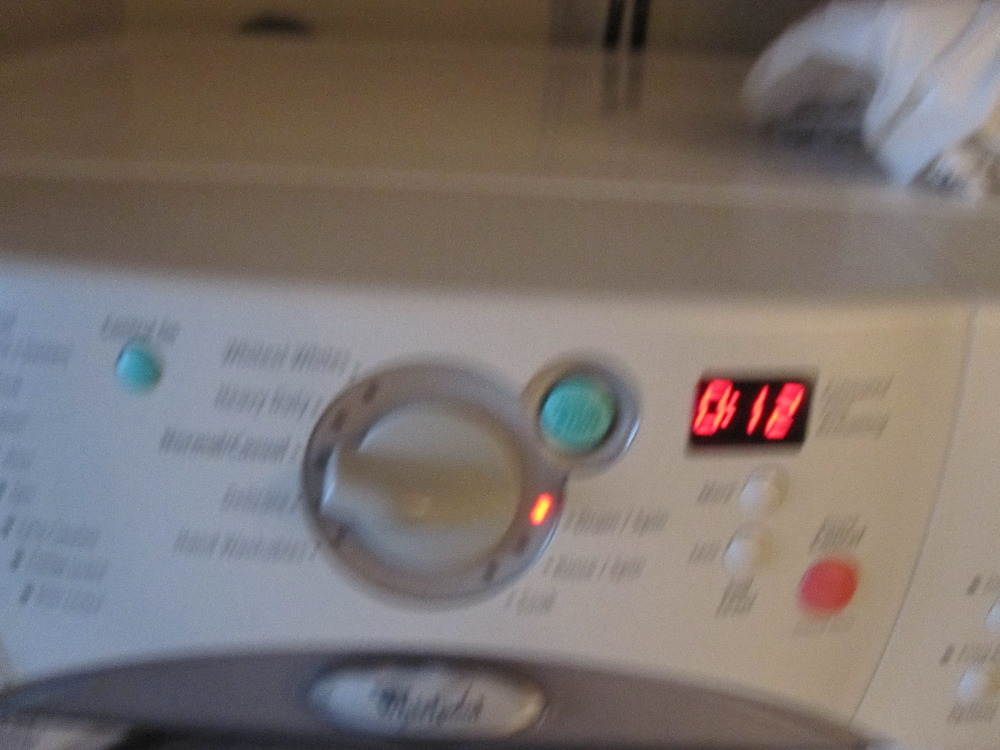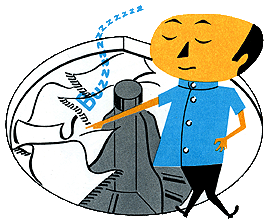|
Thread Number: 41649
FL Washers and Rinsing |
[Down to Last] |
| Post# 614386 8/3/2012 at 08:59 (4,281 days old) by roscoe62 (Canada) | ||
|
So there are a number of machines to choose from when purchasing a front load washer, which one(s) are known to be better for rinsing based on your experience. Tks for any input :) | ||

|
| Post# 614400 , Reply# 1 8/3/2012 at 09:43 (4,281 days old) by glenfieldmathk1 (Glenfield-Leicester-UK) | ||
|
Here in the UK it will have to be - Hotpoint Ultima. (2 very deep rinses on cottons, and add up to 3 extra - gives 5 in Total) - Water at least half way up the drum, with full loads. I am not sure about the Canadian market - might be worth considering LG with allergy rinse - which is a 40C final rinse which rinses out all the residue? | ||
| Post# 614653 , Reply# 2 8/4/2012 at 14:22 (4,280 days old) by zanussi_lover (Nottingham, UK) | ||
40*c Final Rinse on LG | ||
Post# 614694 , Reply# 3 8/4/2012 at 16:37 (4,280 days old) by Launderess  (Quiet Please, There´s a Lady on Stage) (Quiet Please, There´s a Lady on Stage) |
||
Commercial Laundries
Have been rinsing at 100F for ages, though some do rinse in (tap) cold water as well. Laundromat machines are usually set for tap cold but have seen some where the first rinses are cold but some hot water is added for the final rinse. Can only assume the latter is to help dispense fabric softener.
Warm water rinsing (90F to 100F) has been around for ages, even after soap was replaced by detergents. There is some school of thought that the warmer water helps remove more residue than cold. It is also slightly better for any rinse products (starches, fabric conditioners/softeners) than cold water. Of course *cold* water can vary by local climate and time of the year. Ice cold water probably does not rinse as well as 85F. | ||
| Post# 614706 , Reply# 4 8/4/2012 at 17:48 (4,280 days old) by wetguymd (Maryland) | ||
 | ||
| Post# 614708 , Reply# 5 8/4/2012 at 18:04 (4,280 days old) by jerrod6 (Southeastern Pennsylvania) | ||
|
I don't know of any new front loader you can buy that will let you use warm water to rinse. At least not in the USA. I guess these might exist in other countries though. | ||
Post# 614725 , Reply# 6 8/4/2012 at 19:46 (4,280 days old) by Launderess  (Quiet Please, There´s a Lady on Stage) (Quiet Please, There´s a Lady on Stage) |
||
Warm Water Rinsing
It was common to have at least one or two hot rinses, followed by several warm or cool/cold when doing laundry with soap, by the 1970's when detergents had nearly totally replaced the former, (tap) cold water was recommended to save energy. This was largely for domestic laundries and you can see this taking hold as fewer and fewer washing machines were sold with "warm/warm" or "hot/warm" cycles.
Commercial laundries in the United States by and large use central hot water supplied from a boiler and mixed at point of use for proper temperature. The other option is to use steam supplied from a central system to raise water temps to the required level. Using centrally supplied water allows faster through-put as there is no time lost waiting for water to heat. It also makes possible warm water rinses as the machine is plumbed to both hot and cold water. For commercial laundries there are several reasons why they would use warm water for rinsing. The first is that again given various local climates *cold* water could be very chilly indeed. That would leave laundry "cold" and thus more energy is required of the ironers or dryers. How much more energy probably has been factored out and available to those whom need it. Consumer Reports long as stated that while placing laundry rinsed in cold water into a tumble dryer increases energy use for the latter, it is still cheaper than using warm water rinses. Natural textile fibers much like other things expands and contracts in relation to temperature. Warm and hot water rinsing in theory allows greater removal of chemicals and soils than cold. Again this is going to vary by local water temps and other factors such as chemicals used in the laundering process. Historically American commercial laundries use chlorine bleach for whites and or colourfast loads. This is usually done in a separate cycle (first rinse) at hot water temps (>120F) and proper pH (alkaline) levels. Hot water not only causes a faster reaction time of cholorine bleach, it also causes much of the substance to gas off which helps to reduce the residue in fabrics. My guess is that following a hot (>140F) wash with a hot bleaching cycle with a cold rinse would not only cause textile shock but suddenly cause fibers to clamp down trapping soils, bleaches, residues etc to be trapped. There is also the fact various chemicals added to the succession of rinses (anti-chlor, fabric conditioners/softeners, starches, etc...) dispense and or work better in warm to lukewarm water. Finally remember reading somewhere that warm water loads are easier for washing machines to spin/extract since they are "lighter" than cold. One assumes this relates to evaporation rates and the ease of moving water at one temp versus the other. One has tried warm water rinses on several loads in the Miele and notice more "gunk" is rinsed from the wash faster than with cold. Also the machine seems to ramp up to spin faster. Also laundry felt "dryer" at cycle end and yes they did tumble dry faster. Regarding wrinkles, didn't notice anything unusual and things came out of the dryer looking the same as when rinsed in cold. | ||
| Post# 614727 , Reply# 7 8/4/2012 at 19:48 (4,280 days old) by ronhic (Canberra, Australia) | ||
LG
Many of the LG machines in Oz have a final warm rinse and having used one in a holiday let, it is an unusual feeling getting warm clothes out of a machine when your expectation is for cold ones...
As to if they actually rinse better in warm water, I would suggest that they do. Theoretically, warm water will allow the fibres of the material to open up and allow more dirt and/or detergent residue to be removed than if rinsed in tap cold. | ||
| Post# 614753 , Reply# 8 8/4/2012 at 22:14 (4,280 days old) by pierreandreply4 (St-Bruno de montarville (province of quebec) canada) | ||

maybe its true that certain contry keep there washers with a true warm rinse options like if you look at canadian front load washers made by whirlpool or maytag depending on the model they are mostly all cold water rinse but from my point of view eliminating the warm rinse option has been a mistake as when clothes are rinse in warm rinse would take lest time drying as when i do a load that is rinse in clod water it takes longer to dry as i need to rely on high heat when if the same load i wash would of been rinse in warm water i could dry the same load on medium heat and the load would come out perfectly dry so i think that in a way they should at least put a switch on electronic control boards even if its a manuel switch an option if we went a cold rinse on modern front loaders or a warm rinse with in a front load model made by whirlpool or maytag that would trigger the heater of the washer that would heat the water until its warm to luck warm so that the suds are truly remove (first rinse) other rinses + extra rinse water remains cold to prevent wrinkles. in my next reply i will be posting a pic of the washer i plan on buying in the near future as i plan on stacking the dryer on top of the washer. Sorry if the pic is a bit blurry but this is a close up of my 2004 whirlpool duet front load washer and its a 3 temp model hot/cold warm/cold and cold/cold when my mom and me bought this front load model in 2004 i wanted to have a model that has a warm rinse option in case i ever needed to use it ex bed sheets but its only a 3 temp model with no water heater.

| ||
Post# 614759 , Reply# 9 8/4/2012 at 23:01 (4,280 days old) by Launderess  (Quiet Please, There´s a Lady on Stage) (Quiet Please, There´s a Lady on Stage) |
||

It is important to remember that while the purpose of both commercial and domestic laundry is to get textiles clean, the former has different values and reasons for getting from start to finish in their own manner.
For instance it is optimal for flatwork and other items going to ironers/mangles not only to be extracted properly but a bit warm to ease through-put and cooling of the machine (thus energy use) by having to recover temps from handling "cold" linen. Of course the heating capacity of commercial ironer units vastly outstrips home units, but one assumes even the *small* amount of extra energy required to maintain temp from cold washing adds up. Some laundries "pre condition" items by putting them into a tumble dryer before going to the mangles (their version of using the "damp dry for ironing" setting on tumble dryers)but again that is an extra step and additional energy use both of which cost money and time. | ||
Post# 615336 , Reply# 12 8/7/2012 at 10:06 (4,277 days old) by Frigilux  (The Minnesota Prairie) (The Minnesota Prairie) |
||
 | ||
Post# 615408 , Reply# 13 8/7/2012 at 15:28 (4,277 days old) by Launderess  (Quiet Please, There´s a Lady on Stage) (Quiet Please, There´s a Lady on Stage) |
||
Body Soap/Wash Product Residue On Towels & Wash Cloths
Bath linen should be washed in hot water with a good dosage of detergent to remove human skin oils,soils and other stains they come into contact with. Soap residue can be handled by using phosphates in the wash water. Failing that you'll need *HOT* water to open textile fibers so the gunk can be removed.
You can also "strip" out textile residue by using hot water and decent amounts of washing soda in a wash cycle,but you'll have to rinse several times and use a final sour bath to avoid hard and scratchy towels. | ||

 Comes to the Rescue!
Comes to the Rescue!